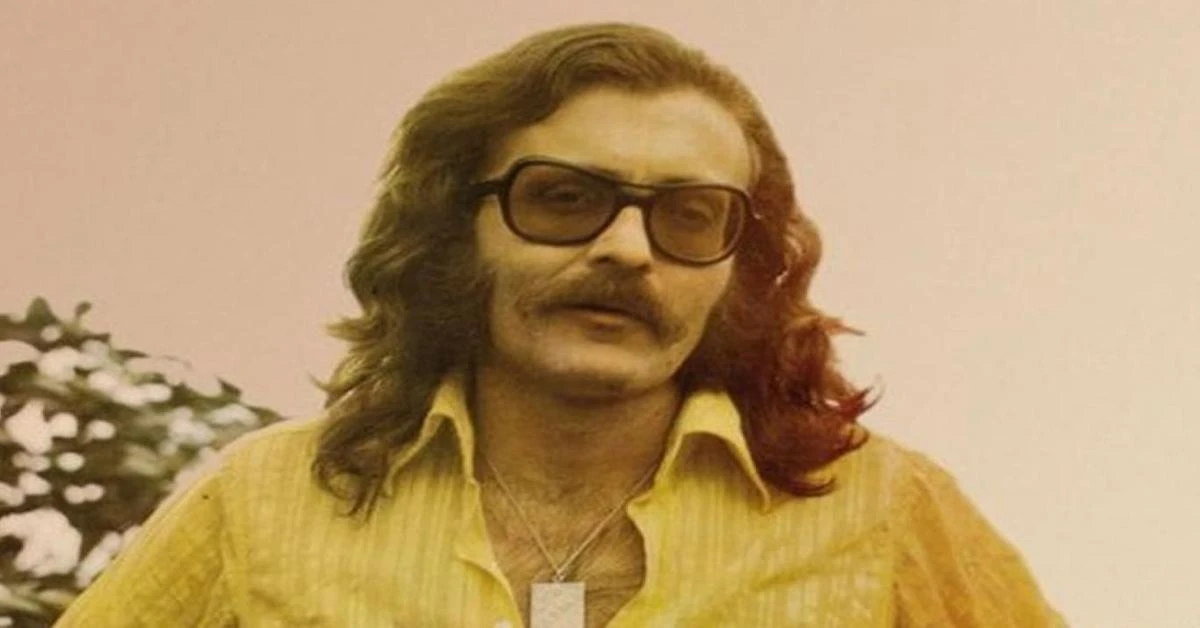Remembering Anatolian rock legend Cem Karaca 20 years after his passing

Cem Karaca’s enduring impact on music and culture in Türkiye remains evident even two decades after his untimely departure
Today, Türkiye marks the 20th anniversary of the passing of Cem Karaca, an iconic figure in Anatolian rock music.
Born in Istanbul on April 5, 1945, to Armenian-Azerbaijani parents who were both actors, Karaca began his musical journey at the age of 6 under the tutelage of his mother, Toto Karaca.
Initially encouraged to follow a career in diplomacy or medicine, Karaca’s true calling in music quickly became evident.
Cem Karaca’s early career
Karaca’s rise to fame began with his performances in cover bands, including the Elvis Presley tribute group called “The Jaguars.” This phase set the stage for Karaca’s unique musical style, harmoniously blending traditional Anatolian folk rhythms with the contemporary rock sounds of the era.
His musical evolution continued after his military service, where he explored Turkish folk songs, blending them with rock music’s modern sensibilities. This fusion became the hallmark of his career, distinguishing him as a pioneer of Anatolian rock.
“I used to see folk music as old and primitive, but later I realized that the style of music revives and expresses my feelings,” Karaca once said, reflecting his deep connection to the music of his homeland, as reported by Hurriyet.
Anatolian rock as a medium of social commentary
Karaca’s music transcended mere entertainment, evolving into a powerful medium for social and political commentary. He became a voice for the disenfranchised, his lyrics resonating with the struggles and aspirations of ordinary people.
In an interview reflecting on his work, Karaca said, “I see my music as a bridge between the musical life of Istanbul’s western-oriented middle classes and the people of Anatolia,” underlining his aim to unite diverse cultural strands through his art.
His commitment to social causes was also evident in his support for international issues. Karaca notably dedicated his song “Adiloş Bebe” to raise awareness for the Palestinian cause.
Cem Karaca’s exile and homesickness
The late 1970s marked a tumultuous period in Türkiye’s political history, deeply affecting Karaca’s life. As political unrest reached its zenith in 1979, Karaca faced mounting pressure over his records and statements, leading to an eight-year exile in Germany. This period was marked by personal struggles, including his inability to attend his father’s funeral in April 1980.
The following months saw further upheaval, with the military takeover under Gen. Kenan Evren on Sept. 12, 1980. Karaca and fellow artist Selda Bagcan were ordered to return to Türkiye to face charges of treason, a directive they defied, resulting in the revocation of their citizenships on Jan. 6, 1983.
“There’s no cure for homesickness,” he admitted during his exile, expressing the emotional toll of being away from his homeland.
Karaca’s return from exile
Cem Karaca’s return to Türkiye in 1987 marked a pivotal moment in his life. His homecoming was accompanied by a controversial yet symbolic gesture – the kissing of then-Prime Minister Turgut Ozal’s hand. This act was seen as a sign of gratitude for his amnesty and return but was also met with criticism from some quarters.
Back in Türkiye, Karaca continued to make music, collaborating with artists like Berkay and Ugur Dikmen and producing hits like “Islak Islak.” He remained active in the music scene until his last concert in Ankara on Jan. 17, 2004. Just weeks later, on Feb. 8, Karaca passed away at the age of 58.
An immortal legacy
As Türkiye commemorates the 20th anniversary of Cem Karaca’s passing, his enduring influence on Anatolian rock and his role as a social and political voice continue to be remembered and celebrated.
Karaca’s artistic legacy, marked by his unique fusion of traditional Anatolian folk and modern rock, his advocacy for social causes, and his resilience in the face of political adversity, leaves a lasting impact on the music industry and Turkish culture.



